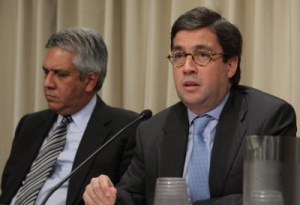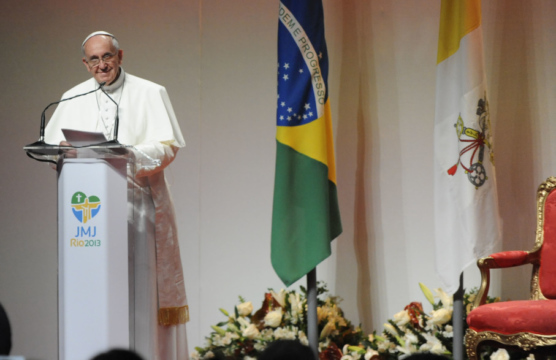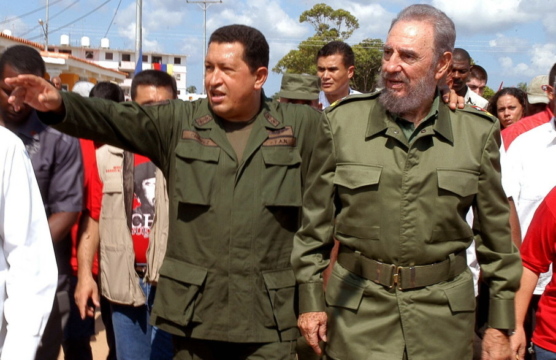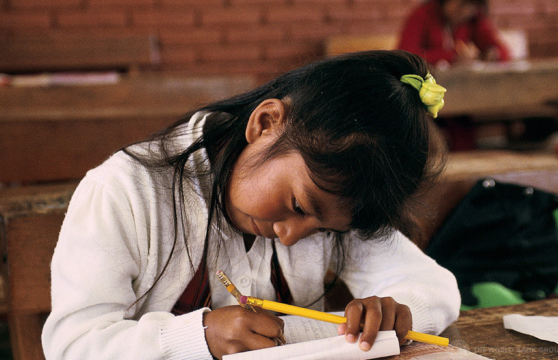
Latin America: Ready for the Challenges Ahead?
A conference for Washington officials and opinion leaders on hemispheric affairs.
A conference for Washington officials and opinion leaders on hemispheric affairs.
Pope Francis’ preferential option for the poor and genuine benevolence is part of an effort to stop the hemorrhaging of Catholics to Pentecostalism in Latin America.
Haiti represents one of the most complex and deeply rooted challenges facing U.S. foreign policy in the Western Hemisphere: a failing state on the doorstep of the world’s most powerful nation.
A definition of teacher effectiveness that is appropriate and workable in theLatin American context.
México, Guatemala y Bolivia, junto con Perú y Ecuador, son los países latinoamericanos que tienen el mayor peso continental de población indígena, lo que ha desafiado a sus sistemas educativos a incorporar la educación intercultural bilingüe. Se presentan aquí los casos de los tres primeros países mencionados, partiendo con México,…
En los años ’80, el sistema educativo argentino mostraba un alto nivel de deterioro de su tradicional calidad, a lo que se sumaban los viejos problemas no resueltos: segmentación del servicio en términos de calidad según la situación socioeconómica o ubicación geográfica de la población; déficit de escolarización en el…
Hay entre los elencos sindicales un consenso generalizado respecto de la necesidad de llevar adelante una reforma y se han logrado acuerdos generales sobre los lineamientos de la misma. Los desacuerdos parecieran estar relacionados no con la reforma en sí, sino con el modelo organizacional subyacente, que propone un sistema…
Last month’s CELAC meeting was a celebration of the single point of consensus among its members: their opposition to US policies.
Education leads to entrepreneurship, and entrepreneurship leads to innovation.
Guatemala has seen some improvements in public institutions and finances but its political party system is highly fragmented and its citizenry remains disillusioned by widespread corruption.
Someday, someone will write the objective history of the US-Colombia free trade agreement For the US, the history is not a happy one.
The picture of a drug-legalized America is sensationalist and plays on existing societal fears that drug use will spread like a disease.
The question remains if Mexico has achieved a degree of institutional development consistent with its participation in those organizations.
Although politics has cyclical features, and ideology is sometimes a factor in choices made by Latin American voters, the left-right labels obscure more than they illuminate.
Should Insulza be elected to another term as OAS secretary general? Will he be challenged for re-election?
 Video
Video

 Video
Video